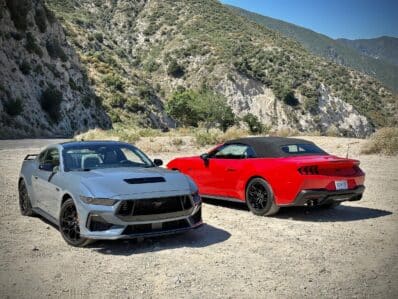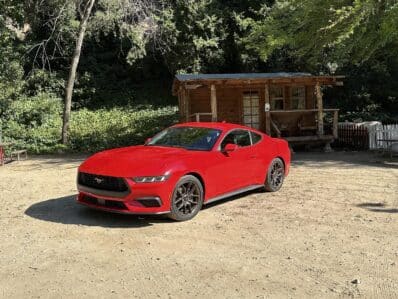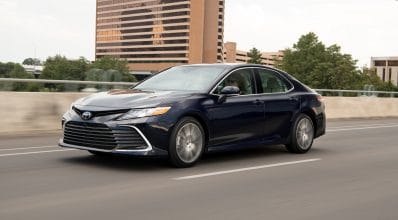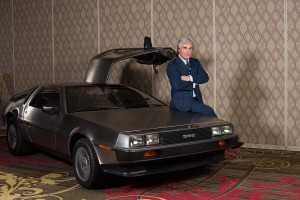
“Framing John DeLorean,” the new movie about the fallen auto executive, has an awkward title and cinema purists are likely to be put off by its mix of talking heads, bits from news film and videos and scenes re-acted by actors.
It almost seems that the producers of the film couldn’t find enough archival footage to do a documentary but had nowhere near enough money to hire actors and find the locations necessary to serve as back drop for DeLorean’s biography.

But the film, with Alec Baldwin serving at the narrator and commentator, manages to succeed in telling the dramatic story of rise and fall a Detroit-born auto executive, who left his name on what has become an iconic vehicle with a unique place in American popular culture.
Framing John DeLorean covers a lot ground but concentrates mainly on the brief period in the late 1970s and early 1980s when DeLorean was one of the biggest stories in the automotive business as he set out to build his automotive company and brand. It’s a story well told in the film, which should appeal to wide audience via streaming services and cable channels even if it doesn’t get very wide theatrical release.
(DeLorean’s widow suing to get movie car profits. Click Here for the story.)
DeLorean, as the film notes, enjoyed a meteoric rise at General Motors and the gives him credit with launching Detroit’s muscle car revolution with the introduction of the GTO. But DeLorean, who was drawn to the free-wheeling California lifestyle of the ’60s and ’70s, was rebel and uncomfortable with the idea the long executive apprenticeship he would have to serve if he wanted to become GM’s president, a job for which many of his peers seemed to think he was destined.
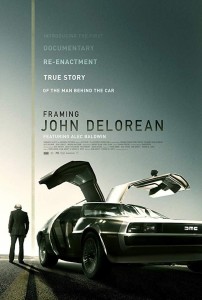
So DeLorean, who clearly was one of the most talented auto executives of his generation, struck out on his own, recruiting a talented engineer, Bill Collins from GM’s Pontiac Division, to build the car that he decreed his former colleagues at GM spurned.
Ultimately DeLorean actually succeeded with the help of would-be dealers and the British governors and others, including Colin Chapman, the founder of Lotus Cars and major figure in Formula One racing, in building a factory in Norther Ireland and producing an imperfect vehicle that was shipped for sales.
Unlike Elon Musk, who has built Tesla during a long economic expansion, DeLorean had the misfortune of launching his company into the teeth of a grim recession. At the same time, the Conservative government of Margaret Thatcher had come to power in Great Britain and Northern Ireland and had no interest in fulfilling the agreement signed by the previous Labor government even though unemployment in the war torn province was 30%, leaving DeLorean, both the man and the company, strapped for cash.
As he searched for money to keep the company afloat in 1982, DeLorean became entangled in a bizarre scheme that involved raising cash through the sale of cocaine.
(Click Here for details about the electrified version of the DMC-12.)
DeLorean was arrested and the company dissolved. But DeLorean ultimately was acquitted after his attorney convinced a Los Angeles jury that, as the film’s title suggest, he was framed by zealous federal prosecutors eager for a big win in the war and drugs.
He walked away a free man, but in the process, he lost his wife, family and any hope of new career in the car business at a time when Detroit was crying for executive talent that could face down the challenges from Europe and Japan.
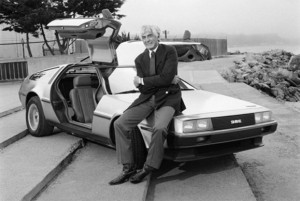
Ironically, the DeLorean Motor Co. might have had a chance had not DeLorean and Chapman siphoned off $17.6 million in cash into personal accounts before the crisis came down on them.
DeLorean repented during his long exile from the car business, becoming a born again Christian and going to gathering of DeLorean owners excited by the fact the man who created the car made legendary in “Back To The Future” still walked among them.
As one of DeLorean’s former employees noted, “If only we could have hung on until the movie.”
(Back to the Future Day brings justice for DeLorean estate. For more, Click Here.)
Framing John DeLorean is hardly a perfect movie and I found myself wishing the producers would have told more about certain and part about DeLorean and Chapman taking money from the company was jumbled. But all in all, it was compelling story about a man who challenged the established order.






